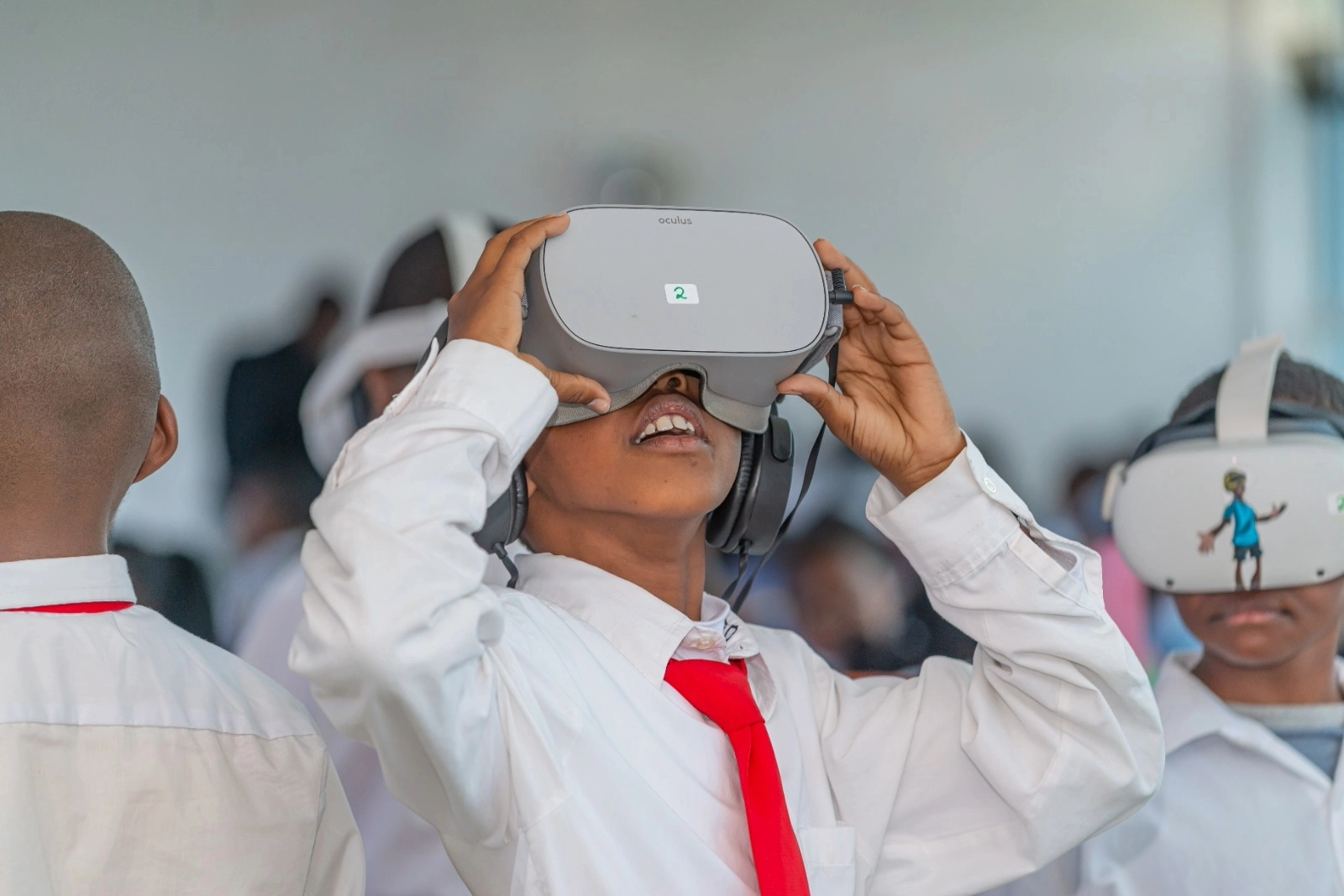
Kenyan school embraces virtual reality for enhanced learning
Central Kenya has for years on end largely been characterized by vibrant agriculture, as evident in the lush green tea and coffee farms. A new feature is however taking root, leaning heavily on new-generation technology.
Gathukia Mwangi has witnessed this shift in his native Kiambu County.
A farm that once employed his grandmother now houses a school with an ambitious initiative that aims to perk up education through virtual reality (VR).
“My grandmother worked here in the 1930s as a house girl. Now, it’s a place where we nurture young minds,” Mwangi said.
Mwangi, a co-founder of Ukwenza VR, also serves as its creative lead.
He has been integral in the conversion of the agricultural space to become a center for innovation and learning. Today, students at Nexa International School are not only learning about the world — but they are also experiencing it in ways that were once unimaginable.
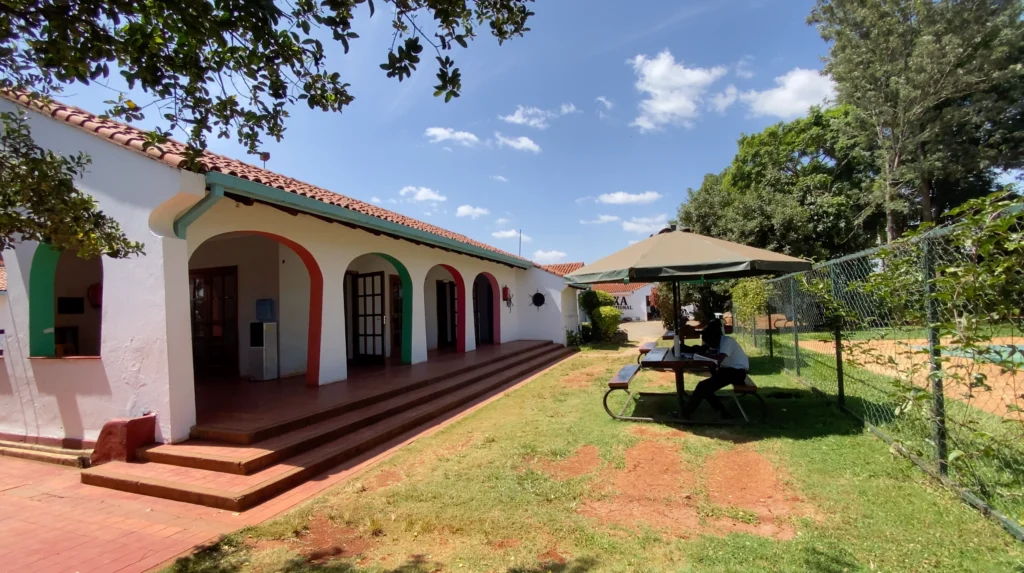
Classrooms at Nexa International School, Kiambu County, Kenya. / CGTN
The school is equipped with tech-savvy classrooms and immersive learning methods which help to prepare students for a technology-dependent future.
As already common in the corporate world, Nexa has incorporated online lessons for students who are unable to attend lessons physically.
Furthermore, classes are also fitted with electronic audio-systems with built-in speakers to ensure all students hear everything taught during a lesson.
But the school’s best sell is the incorporation of virtual reality into the curriculum.
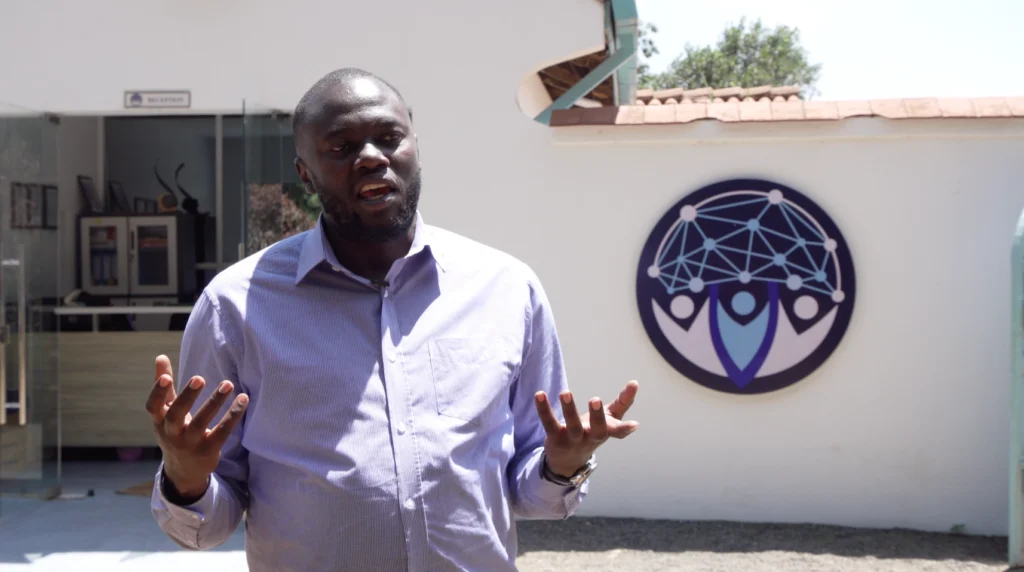
A new kind of classroom
Donning VR headsets, students attending a Global Perspective class are immersed deep into the realities of their lesson.
The day’s focus is on the Nairobi River, an ecosystem damaged by years of pollution.
Unlike conventional field trips that require students to travel vast distances, learners are able to visit, observe and make inferences on various topics far away, at the comfort of their desks.
The VR essentially allows them to appear at the river’s edge, watching plastic waste float downstream.
Mwangi hailed the technology as a changemaker in education, noting that it offers a chance to bridge the gap between reality and imagination.
“We are able to create what we call the power of presence. It’s ideally being able to take a child from a very poor background and transport them to any place in the world. So a child from Mathare, we’re able to take them to Dubai, and he can experience how that (Dubai) is. And a child from Dubai is able to come to Kenya and experience Africa,” he said.
“VR makes education very interesting so that kids are even able and willing to learn the topics that are otherwise very boring for them,” he added.
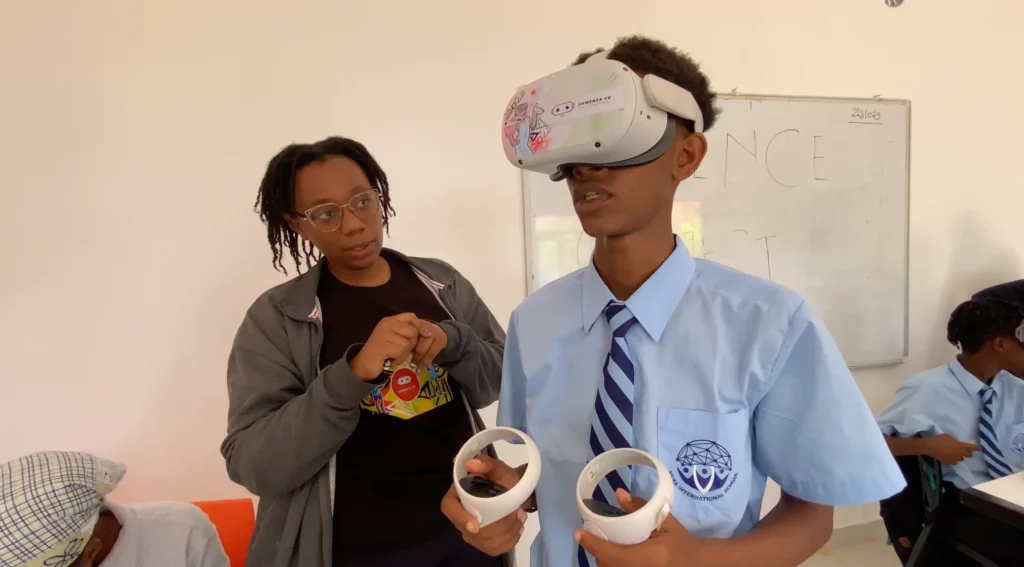
Mwangi noted that the response from students was amazing, highlighting the potential the system has for the education sector.
With that motivation, Ukwenza developed a VR-taught Climate Change curriculum for the Global Perspectives course, enabling students to explore new and upcoming topics beyond traditional books.
Learning to act
Like Mwangi, Jennifer Njeri, a teacher at Nexa International School, is satisfied with the impact VR technology has had on education.
“Learning through VR has created curiosity, because if you are learning about a topic of a country that they have never been to, but they can have a chance to be in that country using the VR, then they get interested and excited for the lessons,” she said.
The sentiments stretch further to the learners.
Students at the Kiambu-based school highlighted the difference in experience between conventional and technology-based lessons.
“VR is better because it takes you to a whole other virtual world, where it takes more of practicals than theory. This engages our creative parts of the mind, which helps us understand better,” Dante Wangai said.
For Nirvana Wanjiru, another student, the experience has made a lasting impression.
“It gives us a different perspective of how we might think a specific place, or whatever we are learning with a VR might look like or might be,” she said.
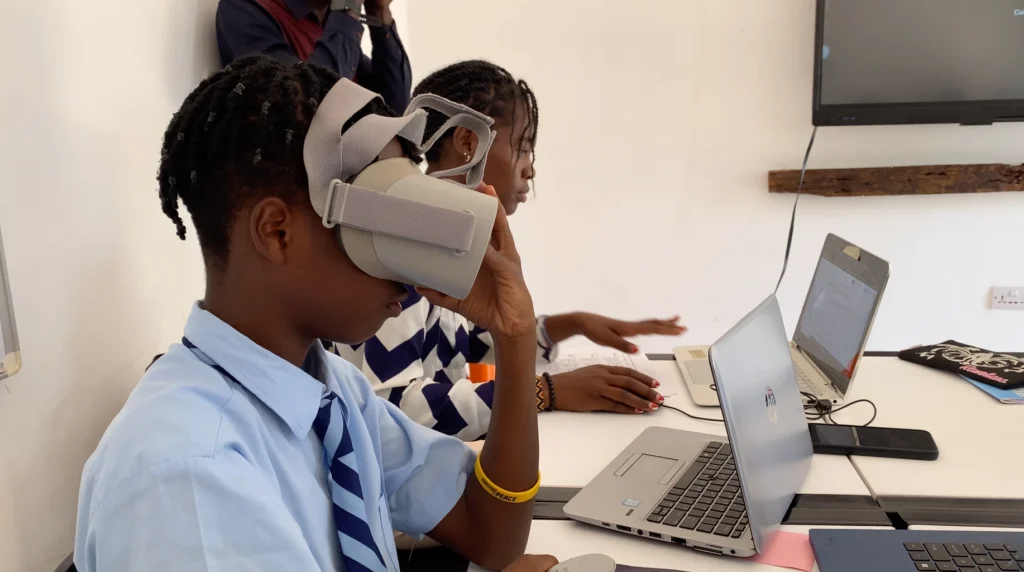
Building a future of environmental awareness
Nexa International School Principal Linah Anyango views VR lessons as not just about technology but about taking care of different learning styles.
“With the era of technology, the attention span of students has really reduced. But with the VR they’re always looking forward to having engaging lessons, and we’ve also been able to take care of different learning styles, the audio learners, the visual learners, and the kinesthetic learners because apart from seeing what is in the VR they’re also engaging with the content in real-time,” she explained.
Nexa is currently the only school in the area offering such cutting-edge learning tools.
It’s a bold step in an education system that often faces resource challenges. But for Anyango, such kind of investments are necessary.
“It’s not possible for us to take the students for a trip under the water, but with the VR experience, they can virtually go there and learn ecology. In addition, it has really saved us on costs. Because we are able to drive virtual science experiments without having to buy some of the expensive chemicals required in the lab.”
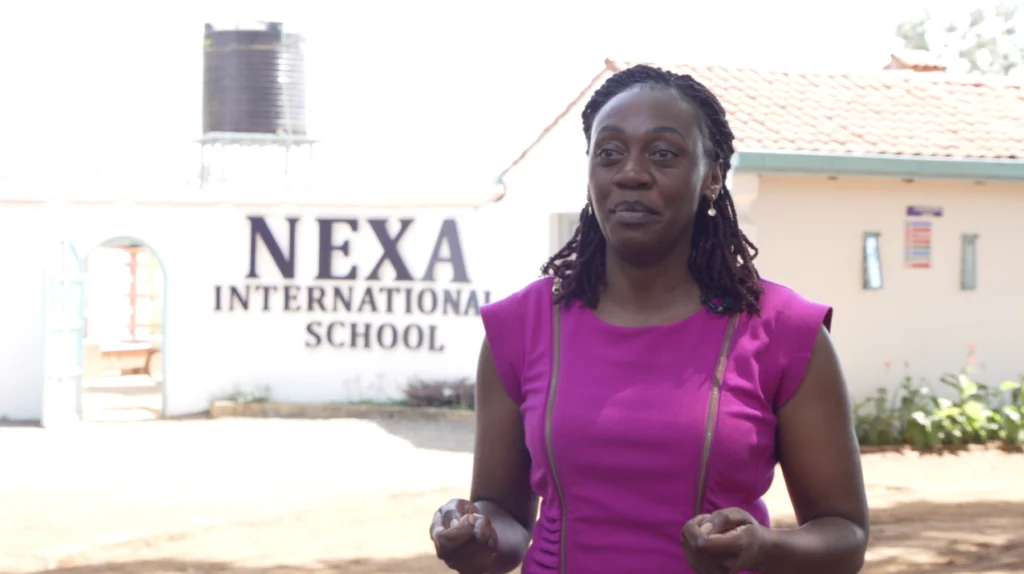
A vision for the future
Gathukia is confident the technology incorporation at Nexa International School will prove to be beneficial in the learners futures.
“There’s a huge disconnect between what kids learn in class and what they’ll face in the world,” Gathukia said.
“That’s why we’re teaching them about AI, climate change, and other global issues using VR in the Global Perspective class.”
The success achieved at Nexa has motivated Ukwenza VR to aim for more. The company now wants more schools to incorporate technology in their programs to benefit more Kenyan learners.
Ukwenza VR currently provides virtual field trips to students who would otherwise be unable to participate due to financial constraints.
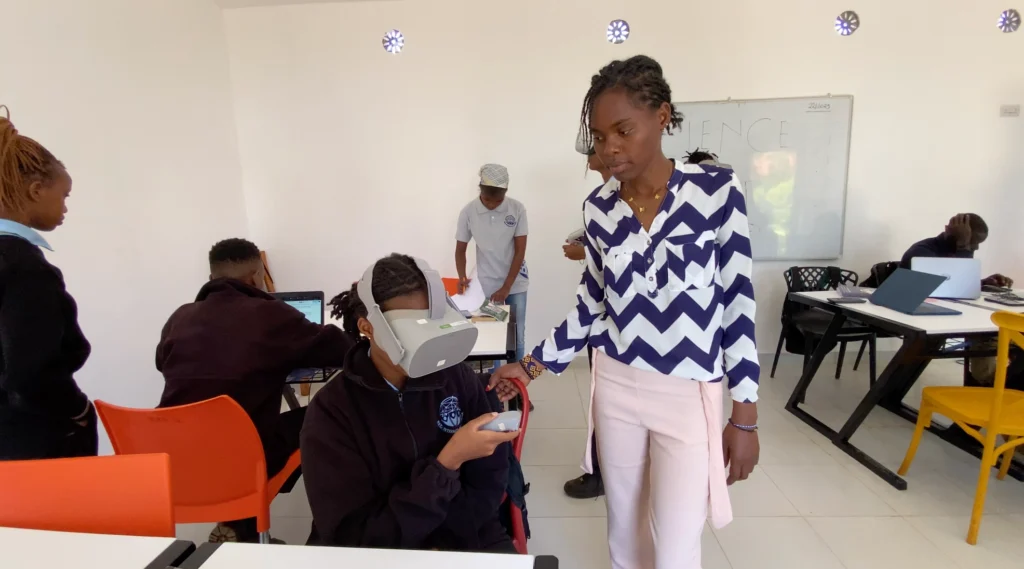
A legacy of growth, a future of possibilities
At the end of their lessons the learners get a sense of confidence in knowledge retention.
Beyond memorizing material for examinations, they are able to incorporate the knowledge obtained in the immersive learning experiences, thereby giving them a better understanding of their curriculum.
In the long run, such experiences could give them an edge in the competitive job market as they’d offer crucial experience-based solutions to critical contemporary issues.






